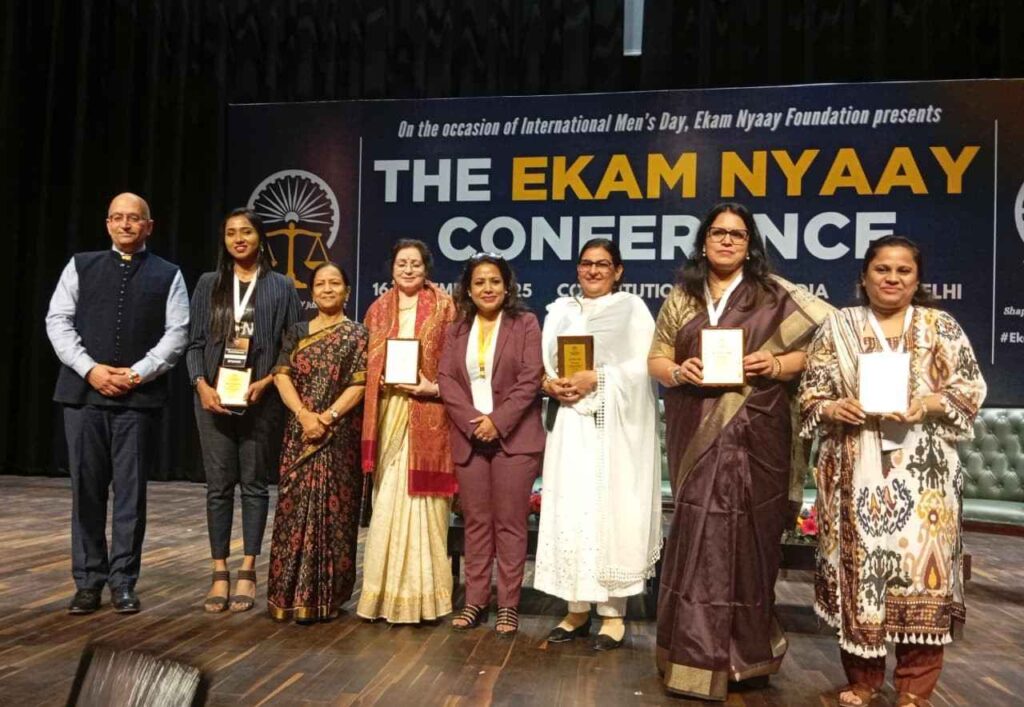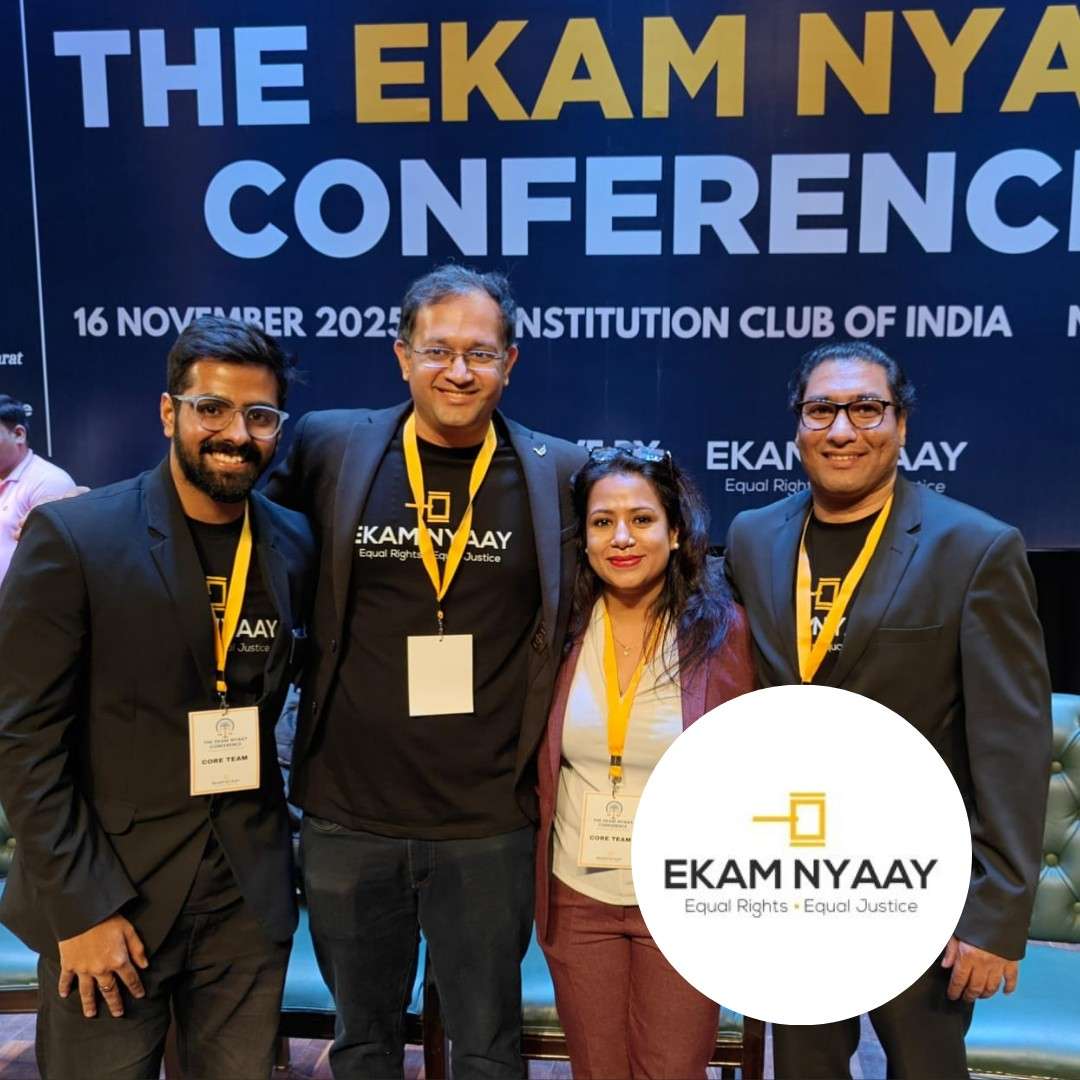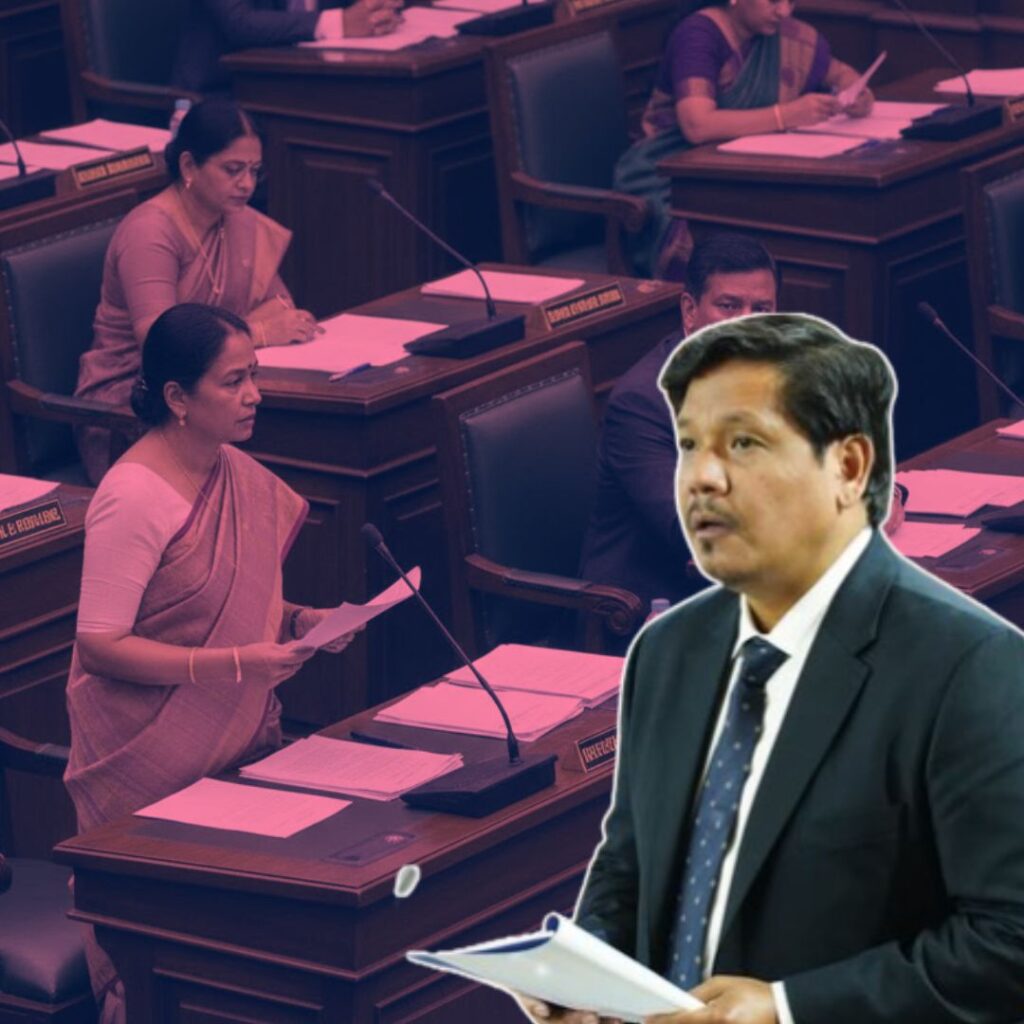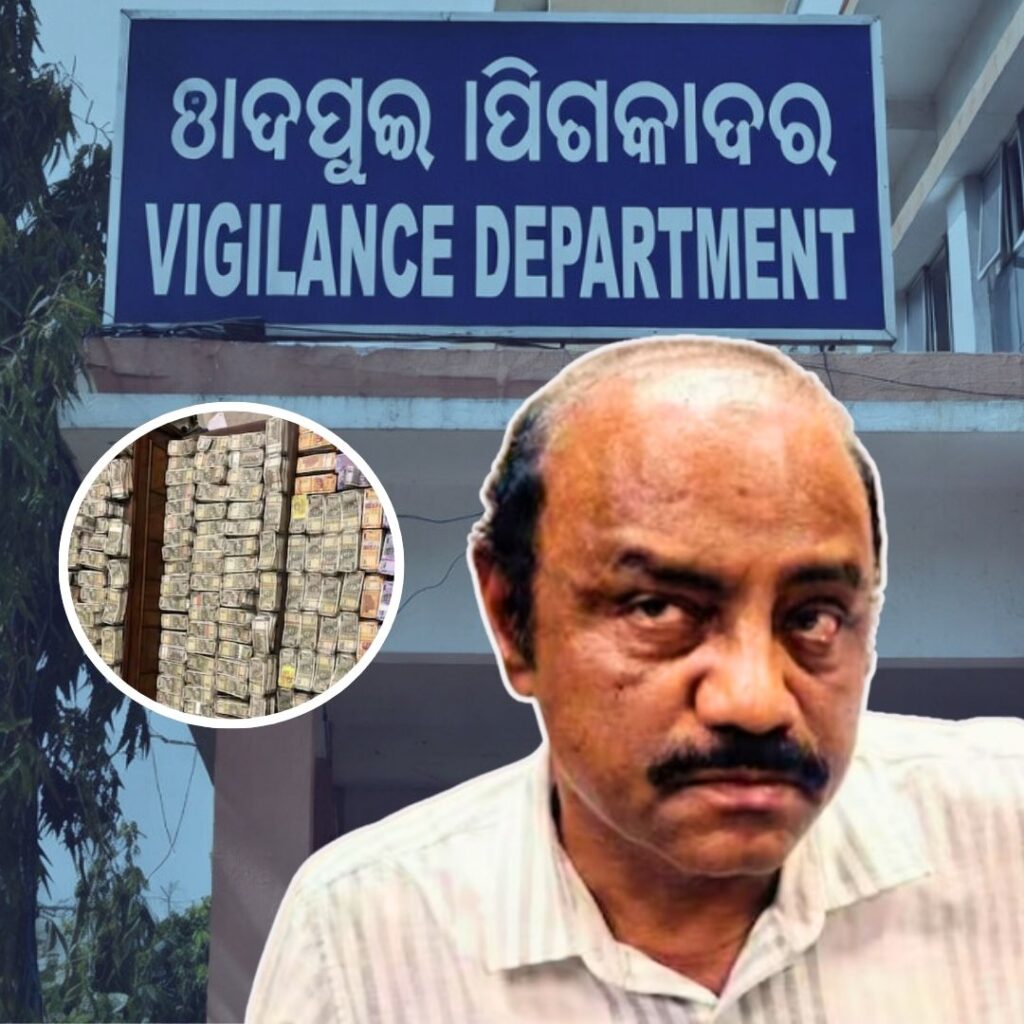The Constitution Club of India came alive on November 16, 2025, as the Ekam Nyaay Foundation hosted its flagship event, The Ekam Nyaay Conference—Shaping an Equal & Just Bharat. Organized in the wake of International Men’s Day, the conference drew legal experts, policymakers, journalists, and mental health professionals into a bold conversation on gender-neutral justice and the overlooked struggles of men in India’s socio-legal system. The hall buzzed with anticipation as former Chief Justice of India, Justice U. U. Lalit, and former Bombay High Court Judge, Justice Sadhana Jadhav, graced the event.
The conference aimed to dismantle stereotypes and encourage nuanced discussions on the misuse of laws, false accusations, parental alienation, and the mental health crisis among men. With a full house at the historic Mavlankar Hall, the event stood out as a rare but crucial platform where stories of male victimhood and calls for systemic reform were heard with empathy and reason.
The Ekam Nyaay Foundation, led by journalist and filmmaker Deepika Narayan Bhardwaj, convened this forum with one clear message—justice has no gender. Bhardwaj emphasized that supporting men’s issues does not oppose women’s rights but strengthens the foundation of fairness and equality that true justice demands.

Justice U. U. Lalit’s Call for Reform and Balance
Delivering the keynote address as Chief Guest, Justice U. U. Lalit captivated the audience with clarity and courage. He stated that criminal justice administration remains one of the most neglected areas in governance, citing poor conviction rates and overburdened police systems as symptoms of deeper structural flaws. With nearly 80 percent of undertrials acquitted, he questioned whether society was trapping the innocent in a system that fails to deliver moral or legal justice.
He urged systemic separation of law-and-order duties from investigation, echoing recommendations from the landmark Prakash Singh case. Justice Lalit highlighted how unsigned witness statements and weak investigative procedures damage faith in the judiciary. “We must ensure our machinery leaves no room for innocent individuals being dragged into endless trials,” he said, noting that humanity and fairness must guide legal processes.
He further observed that in many cases, consensual relationships—later reported as rape on the pretext of false promises—often lead to premature arrests. “In cases of rape, the survivor’s words must be respected, but if an accusation is proven false, there should be an immediate finding within the same trial,” he noted, advocating stronger safeguards against malicious prosecution. Calling the Ekam Nyaay Conference an “Amrit Manthan” for justice, Justice Lalit commended the organizers for sparking an introspection that the Indian legal system urgently needs.

Voices for Change and Compassion
Justice Sadhana Jadhav’s address served as one of the most thought-provoking moments of the day. She raised a powerful question about bias in public perception, stating, “Society says a woman would never humiliate herself by lying—but why not?” Her words challenged the assumptions that automatically equate accusation with truth. She reminded the gathering that every false case brings not only damage to the accused but also immense suffering to their families. “When a man is accused, it’s not he alone who suffers—it is his children, his parents, his siblings, his entire world,” she remarked.
Jadhav praised the Ekam Nyaay Foundation’s commitment to handling such complexities in the justice ecosystem. She described the initiative as “an awakening India needs,” a movement determined to reshape mindsets and replace prejudice with critical empathy. Her speech aligned with the event’s aim—to frame justice not as a contest between genders, but as a moral compass steering society toward fairness and truth.
Adding to the day’s insights, speakers from psychology, law, and media explored rising male suicides, social stigma, and emotional burnout under the weight of false allegations. Former Additional Director of Prosecution, Satya Prakash Rai, summed it up with striking simplicity: “Victims ka koi gang nahi hota”—a reminder that pain needs no gender to be real.

Ekam Nyaay Foundation: Redefining Compassion and Justice
Deepika Narayan Bhardwaj presented the foundation’s report, outlining its extensive on-ground interventions. Over the past year, Ekam Nyaay counselled over 2,000 men and families, facilitated arrests of 37 offenders, enabled 24 FIRs from victim families, conducted three major studies, and reached more than 700 million people through its media content. Bhardwaj described her team’s role as “holding the hands of men who collapse under stigma and isolation,” reaffirming that no person deserves to be destroyed by falsehood or neglect.
The conference ended on a reflective note, urging society to approach justice not from the lens of gender rivalry but from the principle of truth and equity. As Deepika Bhardwaj stated, justice must stand as a shield—for women, men, and all those wronged by misuse or bias in law. The Ekam Nyaay Conference 2025 did more than start a conversation; it sparked a cultural and legal rethinking—where being pro-justice truly means being pro-humanity.
The Logical Indian’s Perspective: A Call for Balanced Justice
The Ekam Nyaay Conference shines a much-needed light on voices often marginalized in public debates—men caught in the crossfire of legal complexities and societal expectations. Justice must transcend gendered binaries to build a society where fairness is truly blind and accessible to all.
The Logical Indian believes justice systems must evolve continuously, embracing reforms that protect the innocent and uphold dignity without compromising victim rights. Only with such balance can India move closer to its constitutional promise of equal justice for every citizen.













